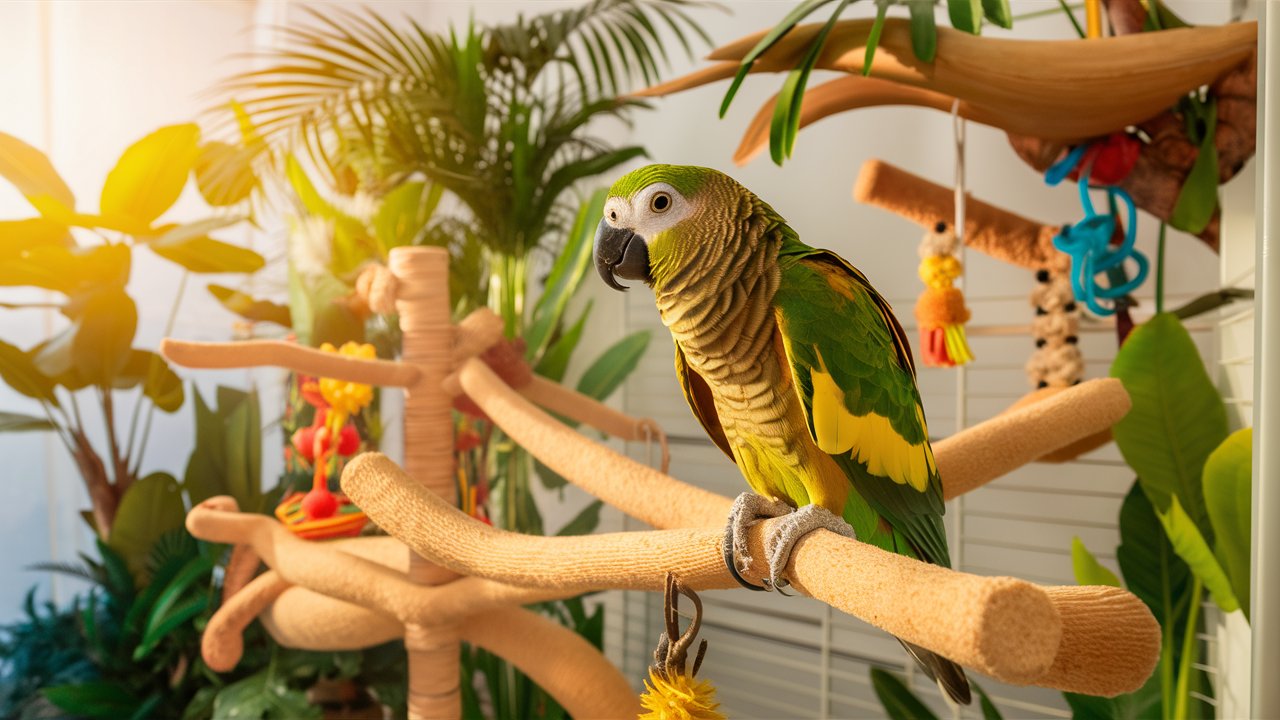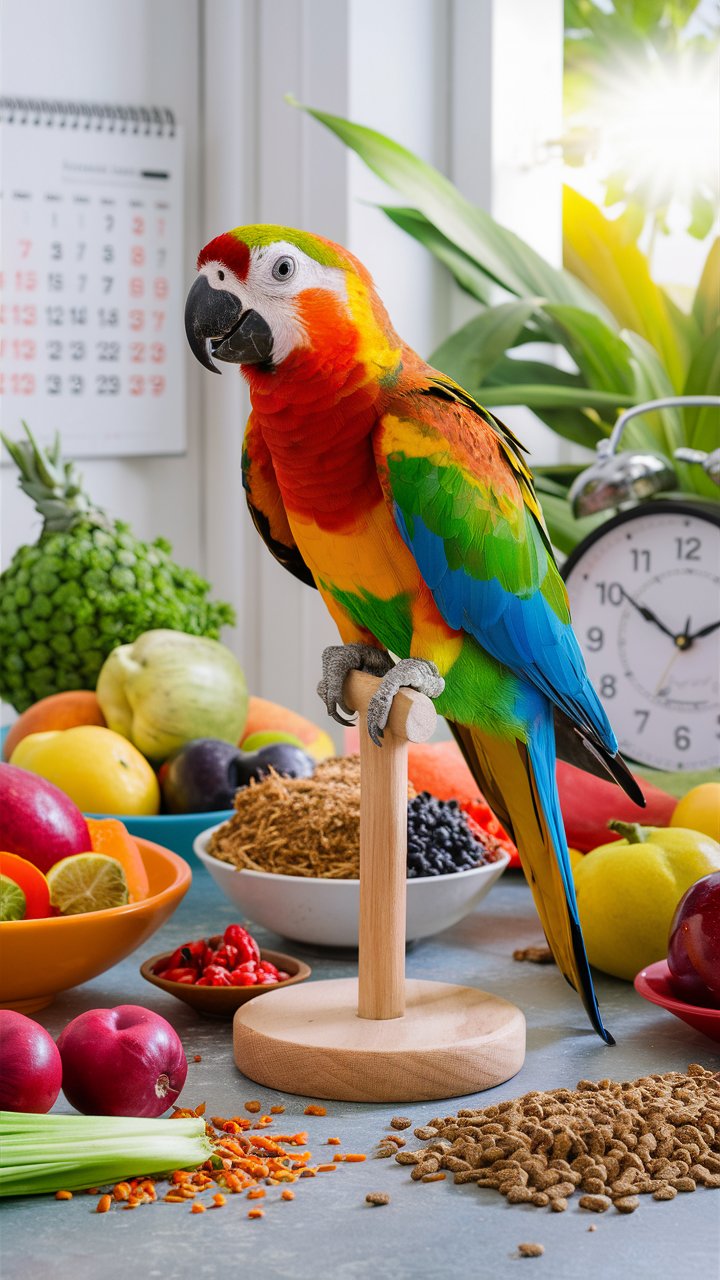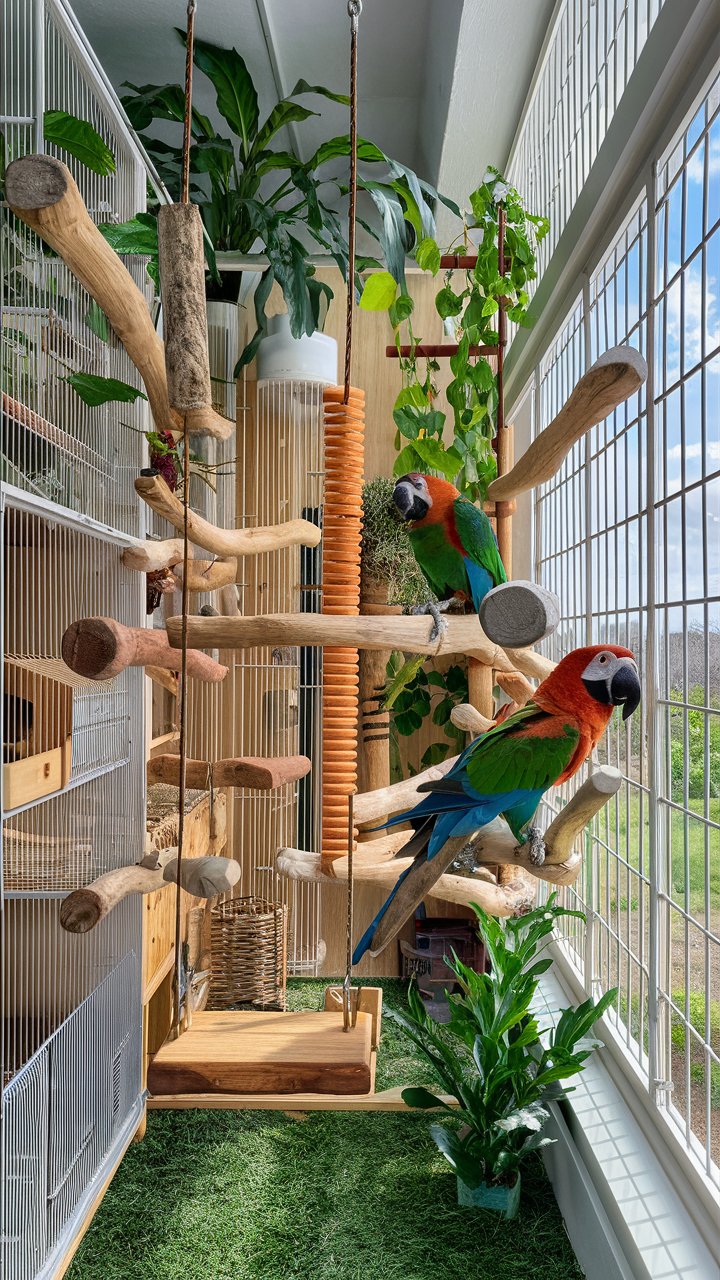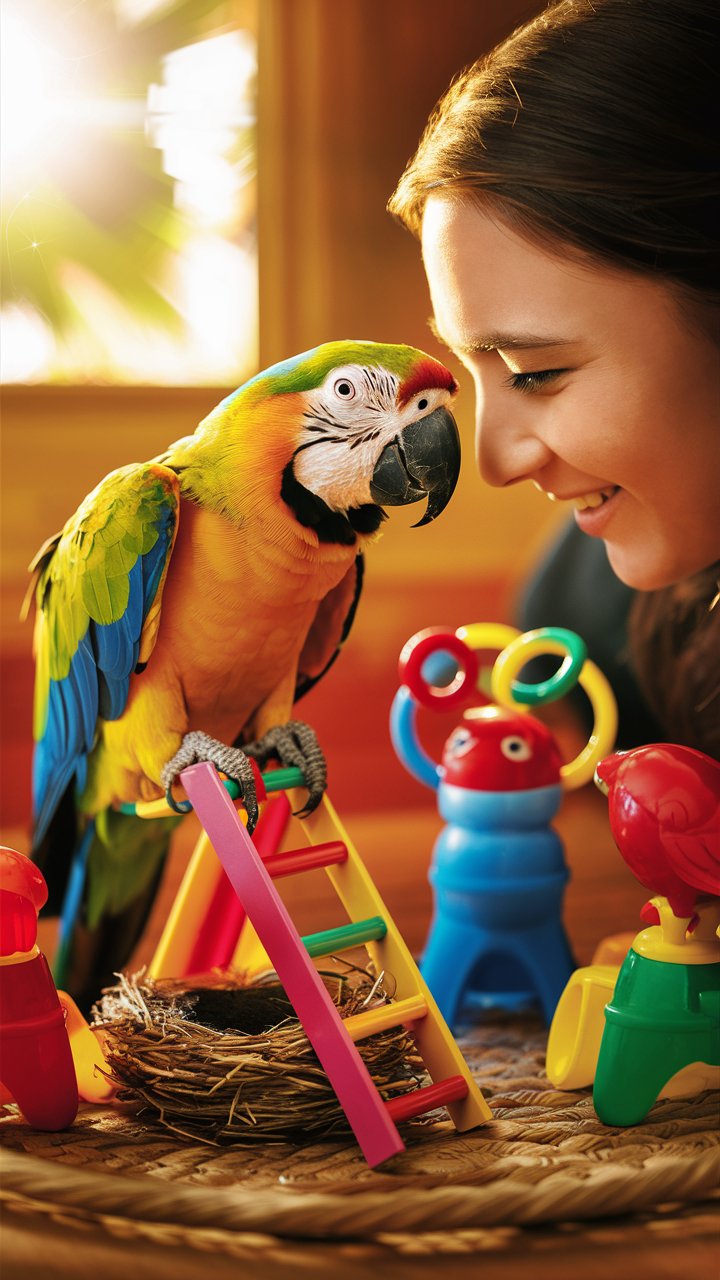Introduction
Senegal parrots, known for their comical and affectionate demeanor, often become lifelong companions due to their ability to live for up to 50 years in captivity. These Senegal parrots make great companions due to their cuddly nature and ability to whistle and talk and mimic, making them a popular pet especially for those who appreciate a quieter, yet highly intelligent bird. With the right care guide, including a balanced diet and proper environmental conditions, their life span can extend significantly.
Understanding the needs of Senegal parrots involves more than just admiring their comical and entertaining traits. It requires a commitment to regular health checks and maintaining an environment that mimics their natural habitat to a degree. This ensures they migrate within their living space comfortably and exhibit natural behaviors like climbing, which are essential for their physical and mental health. By providing love and affection and ensuring interaction that respects their ‘one person’ bird nature, owners can foster a strong and enduring bond.
Key Takeaways
- Senegal parrots can enjoy a lengthy lifespan of over 30 years in captivity, heavily influenced by their diet, healthcare, and living conditions.
- Providing a balanced diet rich in fruits, vegetables, and high-quality pellets is essential for their health and longevity, while avoiding high-fat seeds like sunflower to prevent health complications.
- Regular veterinary visits are crucial for early detection and treatment of potential health issues, which significantly contribute to the lifespan of Senegal parrots.
- A spacious and well-maintained cage environment that mimics their natural habitat is key to promoting physical activity and preventing behavioral issues.
- Understanding and catering to the social and emotional needs of Senegal parrots help in forming strong, lasting bonds with their owners, especially important during the sensitive mating season.
- Vigilance in observing behavioral changes can lead to early identification and management of health issues, ensuring a better quality of life.
Understanding Senegal Parrot Lifespan: What Influences How Long do They Live?
Senegal parrots, known for their comical and affectionate nature, can live over 30 years in captivity, though this can vary based on numerous factors. Key influences include diet, which should be rich in fruits and vegetables, and regular veterinary care to manage common health issues. Environmental conditions within their cage—like space to fly and perches—also play a critical role. Proper socialization, mimicking their natural behavior in the wild, helps maintain their mental health, significantly impacting their lifespan.
Diet and Nutrition: Key to Longevity
Proper nutrition is crucial for extending the lifespan of Senegal parrots. A balanced diet rich in fruits, vegetables, and high-quality pellets ensures they receive all necessary nutrients. Avoiding high-fat seeds like sunflower, which can lead to obesity and health issues, is vital. Regular supplementation with vitamins can help prevent deficiencies that might shorten their lifespan.
Importance of Regular Veterinary Visits
Regular veterinary check-ups play a significant role in a Senegal parrot’s long life. These visits allow for early detection and treatment of potential health issues, including avian diseases. Vaccinations and routine health screenings can prevent complications that might affect their lifespan.
Cage Requirements and Habitat: Ensuring a Healthy Environment for Senegal Parrots
A spacious bird cage is vital for the well-being of Senegal parrots. The minimum cage size should allow for multiple perches and room to fly, as physical activity is crucial for their health. It’s important to replicate their natural habitat to some extent, which involves providing toys for mental stimulation and branches for climbing and perching. Regular cleaning and maintaining appropriate humidity levels help prevent fungal infections and ensure a healthy living environment, crucial for their longevity.
Enhancing Cage Environment for Senegal Parrots’ Health and Longevity
- Optimal Cage Size and Layout: Ensure the cage is large enough to facilitate flight and exercise, with dimensions that allow for at least several full wing flaps between perches.
- Environmental Enrichment: Incorporate a variety of perches with different textures and diameters, along with puzzle toys and foraging opportunities to mimic natural behaviors and prevent boredom.
- Climate Control: Maintain a stable temperature and humidity level within the cage, mimicking the tropical climates most parrots are accustomed to, which helps in reducing stress and preventing respiratory issues.
- Hygiene and Cleanliness: Establish a routine cleaning schedule to minimize the presence of harmful bacteria and fungi; daily wiping of surfaces and weekly deep cleans are recommended.
- Naturalistic Decor: Use natural branches, foliage, and safe, edible plants to simulate a more natural environment, which can help in reducing anxiety and enhancing the overall well-being of the parrot.
Creating a Stimulating Cage Environment
To keep a Senegal parrot healthy and happy, the cage environment should include various toys and enrichment activities that encourage natural behaviors like foraging and climbing. Adequate space for flight and exploration is essential, as these activities promote physical health and prevent behavioral issues.
Maintaining Cleanliness and Suitable Conditions
It’s crucial to maintain a clean cage to prevent diseases. Regular cleaning and disinfection will keep harmful bacteria and fungi at bay. Ensuring the cage is well-ventilated and at a stable temperature helps mimic their natural environment, providing comfort and reducing stress.
Behavior and Temperament: Insights into Senegal Parrot’s Social and Mating Habits
Senegal parrots are playful, quieter than other parrot species, and can develop strong bonds with their owners, often becoming “one person birds.” Understanding their social needs includes recognizing their affectionate nature and providing opportunities to interact for at least an hour a day. During mating seasons, their behavior might change, becoming more nippy or territorial. Proper training and socialization can help manage these temperament shifts, ensuring they remain well-adjusted pets.
Social Needs and Bonding Time
Understanding the social needs of Senegal parrots is crucial for their well-being. They require daily interaction with their owners to maintain their mental health and prevent loneliness. Engaging in activities like talking and playing can strengthen the bond and keep the parrot mentally stimulated.
Handling Mating Season Behavior
During the mating season, Senegal parrots may exhibit different behaviors such as increased aggression or territoriality. Recognizing these signs and providing extra attention and care can help manage these behaviors. Adjusting the environment to reduce stressors can also assist during this sensitive period.
“Parrots are not just birds, they are winged ambassadors of trust and affection. The bond they form is a mirror to their environment and the care they receive.” – Dr. Irene Pepperberg, renowned animal psychologist known for her extensive work with parrots.
Health Management: Addressing Common Health Issues in Senegal Parrots
Generate an image in Bright, Clear, Colorful, Hyperdetailed photography, photorealistic style with Natural light and global illumination: “A detailed indoor scene where a veterinarian in lab attire is examining a Senegal parrot perched calmly on an examination table. The background features medical equipment and charts that relate to avian health care, reflecting the importance of regular health checks. This image conveys the necessity of professional veterinary care in identifying and treating potential health issues to maintain the parrot’s health and extend its lifespan..
Senegal parrots face several health challenges, such as beak and feather disease, respiratory issues, and fungal infections. Regular health checks, including DNA testing for specific conditions, are crucial for early detection and management. A good diet and cleanliness can prevent many common issues. Pet owners should be vigilant about changes in behavior or appearance, which often indicate health problems. Providing a nurturing environment with proper care and affection helps mitigate many potential health issues.
Preventative Care and Disease Management
Implementing preventative care through regular health check-ups and a balanced diet is essential. Early detection of diseases like psittacosis or feather plucking can be managed more effectively with prompt veterinary care, enhancing the bird’s quality of life.
Behavioral Signs of Health Problems
Behavioral changes are often the first sign of health issues in Senegal parrots. Lethargy, decreased vocalization, or changes in eating habits warrant immediate attention. Understanding these signs and responding quickly can prevent minor issues from becoming major health problems.
[lasso rel=”amazon-6″ id=”5273″]
Conclusion
Caring for Senegal parrots extends far beyond meeting their basic needs; it involves a deep understanding of their unique characteristics and requirements to ensure a long and healthy life. These parrots thrive when their environment mimics their natural habitat in the wild, fostering natural behaviors such as climbing and foraging. Regular interactions, essential for their social nature, along with consistent health management practices, are key to their well-being. Their ability to live in the wild conditions of a domestic setting speaks volumes about their adaptability and the importance of a thoughtful care guide.
The success in extending the average lifespan of Senegal parrots lies in the commitment to providing a nutritious diet, ample space for physical activities, and regular veterinary care. Such comprehensive care not only enhances their quality of life but also strengthens the bond between the parrots and their owners, making them truly great pets. Acknowledging and catering to their “one person” bond can transform everyday care into a fulfilling relationship that enriches the lives of both the Senegal parrots and their human companions.











